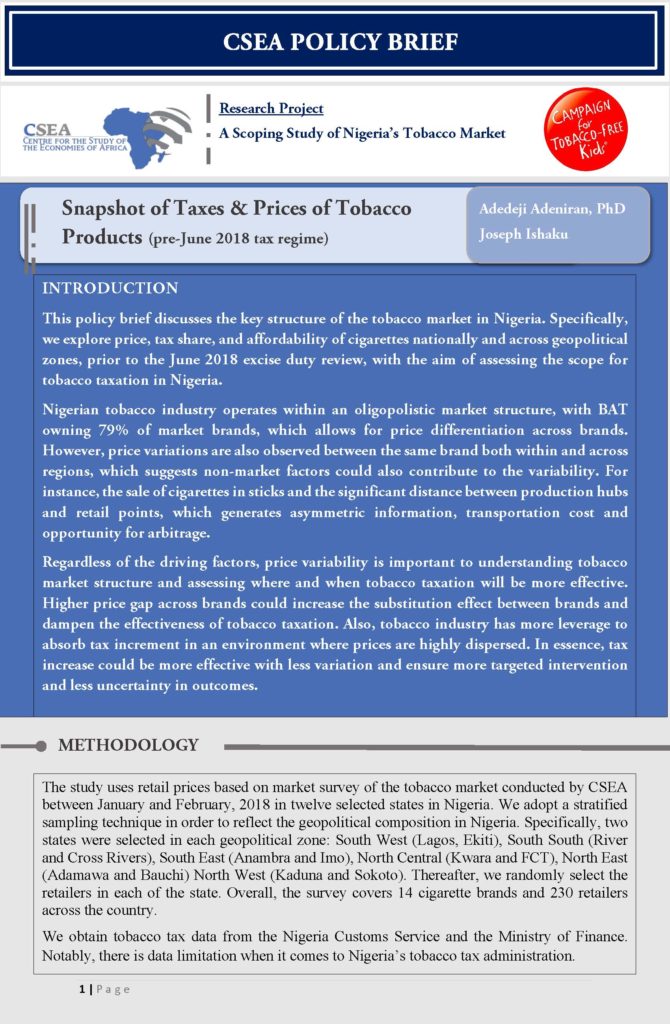Nigerian tobacco industry operates within an oligopolistic market structure, with BAT owning 79% of market brands, which allows for price differentiation across brands. However, price variations are also observed between the same brand both within and across regions, which suggests non-market factors could also contribute to the variability. For instance, the sale of cigarettes in sticks and the significant distance between production hubs and retail points, which generates asymmetric information, transportation cost and opportunity for arbitrage.
Policy Brief & Alerts

January 22, 2019
Snapshot of Taxes & Prices of Tobacco Products
Nigerian tobacco industry operates within an oligopolistic market structure, with BAT owning 79% of market brands, which allows for price differentiation across brands. However, price variations are also observed between the same brand both within and across regions, which suggests non-market factors could also contribute to the variability. For instance, the sale of cigarettes in […]
Read →
Related
Institutions And Sustainable Industrial-led Development In Sub-Saharan Africa
In 2015, economic growth in Sub-Saharan Africa
(SSA) slowed to 3.4 percent from 4.6 percent the previous year. The economic
slowdown in the region was the result of an interplay of several external and
domestic factors such as lower commodity prices, slowdown in the economies of
major trading partners, tightening borrowing conditions, political instability
and conflict, electricity shortages and other infrastructure deficiencies (World Bank, 2016). This sluggish
growth trends is in contrast to the impressive growth recorded in the region,
over the past decade.


